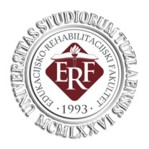A CRITICAL PERSPECTIVE ON EDUCATION ACROSS CULTURAL DIFFERENCES
Keywords:
critical multiculturism, critical literacy, educational institutions, multicultural education, diversity, individual differences, multiculturalism, cultural pluralism, cultural diversity, cultural overlap, immigration, race, religion, gender.Abstract
This paper examines the topic of education across cultural differences and explores the concept of multicultural education (ME) to address the challenges and benefits of cultural diversity in educational institutions. The paper begins by acknowledging the increasing diversity in societies due to factors such as globalization, immigration, and intermarriage, emphasizing the need for cooperation and understanding among nations, peoples, and education; in addition, to highlighting the understandings and contributions of multicultural education, including instilling cultural sensitivity, embracing diversity, and nurturing appreciation of diverse ethnocultural heritage among students. It discusses how multicultural education helps develop a positive mindset, cultural navigation skills, and a global mindset, reducing discrimination, racial abuse, and culture shock while increasing opportunities for employment, education, and settlement in other countries. However, the paper also acknowledges critiques of multicultural education. These include concerns about it being a barrier to quality education for students from minority groups, the potential loss of students' cultural identities, and the argument that it overly emphasizes culture at the expense of intellectual development. The paper discusses the role of critical multiculturalism, intersectionality, critical literacy, and critical race theory in addressing education inequality. These theories advocate for equal resource distribution, recognition of intersecting identities, cultural inclusion, and challenging structural racism. The paper concludes that while multicultural education has its advantages and critiques, these theories offer valuable perspectives for creating a more inclusive and equitable educational system. By incorporating a multicultural perspective, education can better cater to diverse students and foster a more just society.
Downloads
Downloads
Published
How to Cite
Issue
Section
License

This work is licensed under a Creative Commons Attribution-NonCommercial-NoDerivatives 4.0 International License.







